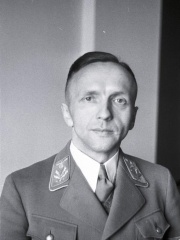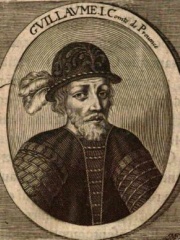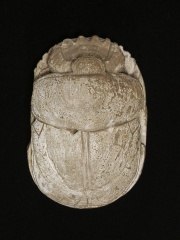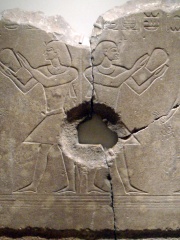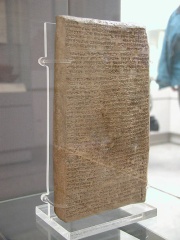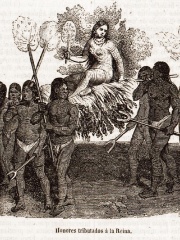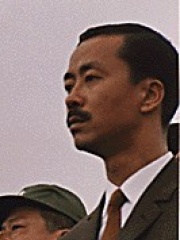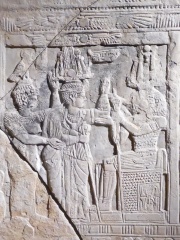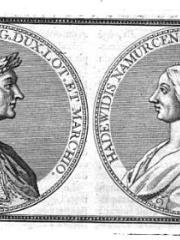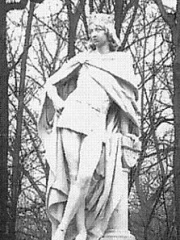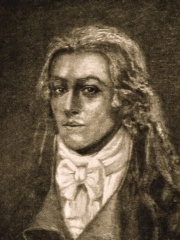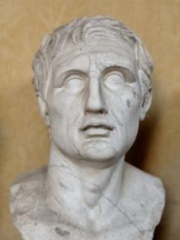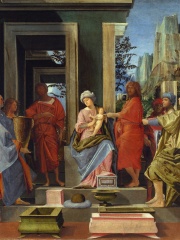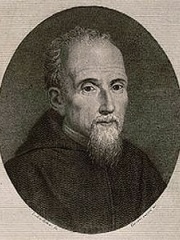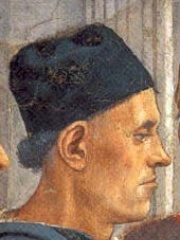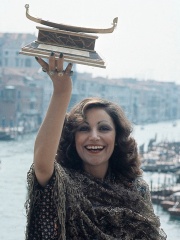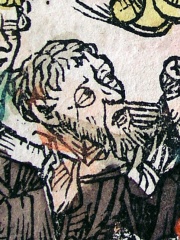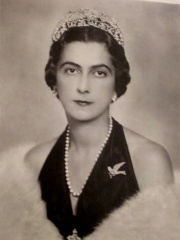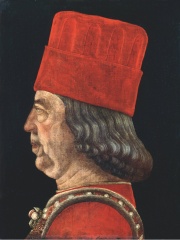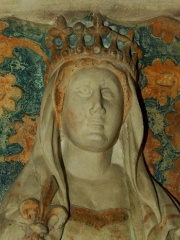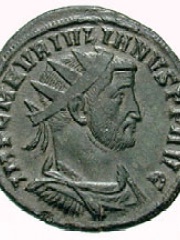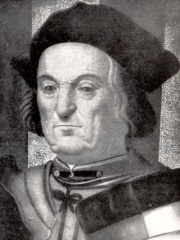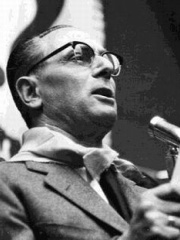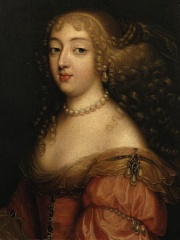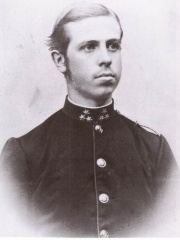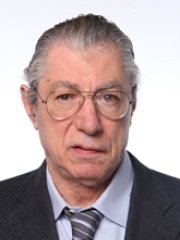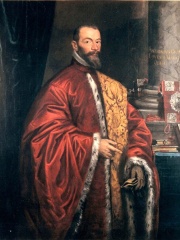Politician
Cicero Minor
65 BC - Today

 Cicero Minor
Cicero Minor
Marcus Tullius Cicero minor (minor, 'younger'), or Cicero the Younger, was born in 65 BC. He was the son of the distinguished orator and statesman Marcus Tullius Cicero and his first wife, Terentia. Read more on Wikipedia
His biography is available in 17 different languages on Wikipedia. Cicero Minor is the 8,458th most popular politician (down from 5,937th in 2024), the 2,138th most popular biography from Italy (down from 1,654th in 2019) and the 541st most popular Italian Politician.
Memorability Metrics
Page views of Cicero Minor by language
Among Politicians
Among politicians, Cicero Minor ranks 8,458 out of 19,576. Before him are Gerhard Klopfer, William I of Provence, Gilukhipa, Sobekhotep III, Shalmaneser IV, and Tushratta. After him are Anacaona, Nguyễn Cao Kỳ, Bohemond VI of Antioch, Amanishakheto, Gerard, Duke of Lorraine, and Henry II, Margrave of Brandenburg-Stendal.
Most Popular Politicians in Wikipedia
Go to all RankingsGerhard Klopfer
1905 - 1987
HPI: 62.75
Rank: 8,456
William I of Provence
950 - 993
HPI: 62.75
Rank: 8,457
Gilukhipa
1390 BC - 1400 BC
HPI: 62.75
Rank: 8,458
Sobekhotep III
1800 BC - 1800 BC
HPI: 62.75
Rank: 8,459
Shalmaneser IV
900 BC - 772 BC
HPI: 62.74
Rank: 8,460
Tushratta
1500 BC - 1340 BC
HPI: 62.74
Rank: 8,461
Cicero Minor
65 BC - Present
HPI: 62.74
Rank: 8,462
Anacaona
1474 - Present
HPI: 62.74
Rank: 8,463
Nguyễn Cao Kỳ
1930 - 2011
HPI: 62.74
Rank: 8,464
Bohemond VI of Antioch
1237 - 1275
HPI: 62.74
Rank: 8,465
Amanishakheto
100 BC - 100 BC
HPI: 62.74
Rank: 8,466
Gerard, Duke of Lorraine
1030 - 1070
HPI: 62.74
Rank: 8,467
Henry II, Margrave of Brandenburg-Stendal
1308 - 1320
HPI: 62.73
Rank: 8,468
Contemporaries
Among people born in 65 BC, Cicero Minor ranks 3. Before him are Horace, and Salome I. After him is Polemon I of Pontus.
Others Born in 65 BC
Go to all RankingsHorace
WRITER
65 BC - 8 BC
HPI: 84.80
Rank: 1
Salome I
POLITICIAN
65 BC - 10
HPI: 64.97
Rank: 2
Cicero Minor
POLITICIAN
65 BC - Present
HPI: 62.74
Rank: 3
Polemon I of Pontus
WRITER
65 BC - 8 BC
HPI: 61.43
Rank: 4
In Italy
Among people born in Italy, Cicero Minor ranks 2,138 out of 5,161. Before him are Tommaso Traetta (1727), Titus Lartius (-600), Caecilius Statius (-230), Bramantino (1465), Paolo Sarpi (1552), and Franco Interlenghi (1931). After him are Luigi Pulci (1432), Mia Martini (1947), Antipope Callixtus III (null), Delio Onnis (1948), Princess Yolanda of Savoy (1901), and Francesco Moser (1951).
Others born in Italy
Go to all RankingsTommaso Traetta
COMPOSER
1727 - 1779
HPI: 62.77
Rank: 2,132
Titus Lartius
POLITICIAN
600 BC - 500 BC
HPI: 62.77
Rank: 2,133
Caecilius Statius
WRITER
230 BC - 168 BC
HPI: 62.76
Rank: 2,134
Bramantino
PAINTER
1465 - 1530
HPI: 62.75
Rank: 2,135
Paolo Sarpi
PHILOSOPHER
1552 - 1623
HPI: 62.75
Rank: 2,136
Franco Interlenghi
ACTOR
1931 - 2015
HPI: 62.74
Rank: 2,137
Cicero Minor
POLITICIAN
65 BC - Present
HPI: 62.74
Rank: 2,138
Luigi Pulci
WRITER
1432 - 1484
HPI: 62.74
Rank: 2,139
Mia Martini
SINGER
1947 - 1995
HPI: 62.74
Rank: 2,140
Antipope Callixtus III
RELIGIOUS FIGURE
HPI: 62.73
Rank: 2,141
Delio Onnis
SOCCER PLAYER
1948 - Present
HPI: 62.73
Rank: 2,142
Princess Yolanda of Savoy
POLITICIAN
1901 - 1986
HPI: 62.72
Rank: 2,143
Francesco Moser
CYCLIST
1951 - Present
HPI: 62.71
Rank: 2,144
Among Politicians In Italy
Among politicians born in Italy, Cicero Minor ranks 541. Before him are Borso d'Este, Duke of Ferrara (1413), Margaret of Durazzo (1347), Gaius Terentius Varro (-300), Sabinus Julianus (300), Gian Giacomo Trivulzio (1440), and Titus Lartius (-600). After him are Princess Yolanda of Savoy (1901), Enrico Mattei (1906), Laura Mancini (1636), Archduke Johann Salvator of Austria (1852), Umberto Bossi (1941), and Antonio Grimani (1434).
Borso d'Este, Duke of Ferrara
1413 - 1471
HPI: 62.85
Rank: 535
Margaret of Durazzo
1347 - 1412
HPI: 62.84
Rank: 536
Gaius Terentius Varro
300 BC - 200 BC
HPI: 62.80
Rank: 537
Sabinus Julianus
300 - 285
HPI: 62.79
Rank: 538
Gian Giacomo Trivulzio
1440 - 1518
HPI: 62.78
Rank: 539
Titus Lartius
600 BC - 500 BC
HPI: 62.77
Rank: 540
Cicero Minor
65 BC - Present
HPI: 62.74
Rank: 541
Princess Yolanda of Savoy
1901 - 1986
HPI: 62.72
Rank: 542
Enrico Mattei
1906 - 1962
HPI: 62.71
Rank: 543
Laura Mancini
1636 - 1657
HPI: 62.71
Rank: 544
Archduke Johann Salvator of Austria
1852 - 1890
HPI: 62.67
Rank: 545
Umberto Bossi
1941 - Present
HPI: 62.66
Rank: 546
Antonio Grimani
1434 - 1523
HPI: 62.64
Rank: 547
